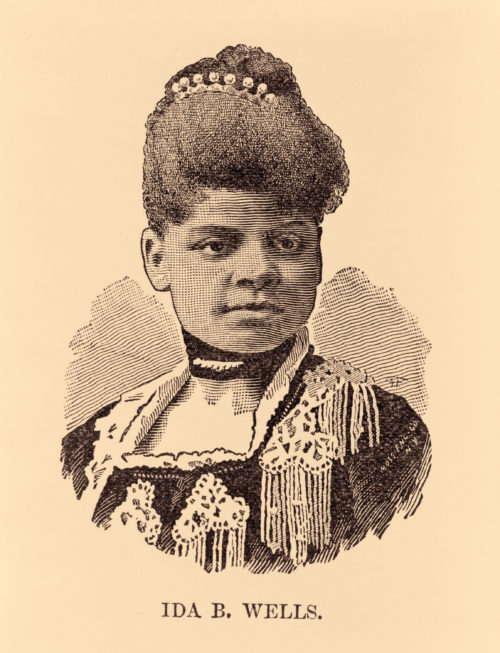Educator, journalist, and anti-lynching crusader Ida B. Wells was awarded Monday, a posthumous 2020 Pulitzer Prize Special Citation for her outstanding and courageous reporting on the horrific and vicious violence against African Americans during the era of lynching. The Pulitzer Prize board created a bequest of at least $50,000 in support of Well’s mission. Recipients will be announced at a later date.
Author, speaker, and educator, Michelle Duster, the great-granddaughter of Wells released the following statement:
“It is an amazing honor for my great-grandmother Ida B Wells to be awarded a posthumous 2020 Pulitzer Prize Special Citation. She spent almost fifty years of her life fighting for justice. She did not have the right to vote until she was in her 50s. She had modest financial resources. So the only thing she had to fight against racist oppression and the violent practice of lynching, was the truth”.

Ida used journalism as a tool to fight for justice. She faced great danger and endured harsh criticism. Her printing press was destroyed. Her life was threatened. But she truly believed that by collecting names, dates, and circumstances around the lynchings that she could transform attitudes and impact policy and laws. The fact that she received this honor in 2020 is fitting. It is the centennial of the 19th Amendment and an election year. So all of her work is relevant in the context of where we are today in this historic moment.
Wells, the eldest child to James and Elizabeth, was born in Holly Springs, MS in 1862. When her parents and infant brother died from the Yellow Fever Epidemic of 1878, Wells and two of her siblings moved to Memphis, where she accepted a job as a teacher in the Shelby County school system. In 1884, Wells filed a lawsuit against the Chesapeake, Ohio and Southwestern Railroad when she refused to move to a segregated car for blacks. She was awarded $500, and the decision was later overturned in 1887 by the Tennessee Supreme Court.
Wells became part owner of the Memphis newspaper, Free Speech and Headlight to denounce racial injustice. When Wells’ three friends Thomas Moss, Calvin McDowell, and Henry Stewart, co-owner of People’s Grocery, were violently beaten and lynched on March 9, 1892, for defending their store against white attackers, she began her anti-lynching crusade. Wells died on March 25, 1931, and is buried at Oak Woods Cemetery in Chicago. In 1974, The Ida B. Wells-Barnett House, 3624 S. Martin Luther King Drive in Chicago, is a National Historic Landmark. In 2018, Congress Parkway was renamed Ida B. Wells Drive, the first time a street is named after a black woman in downtown Chicago. In July 2019, a plaque and honorary street sign, Ida B. Wells Way, was unveiled and is on the corner of 37th and King Drive in Chicago, a historical marker unveiled in Holly Springs, MS and Shelby County, Tennessee declared Ida B. Wells birthday, July 16, as Ida B. Wells Day.



